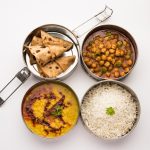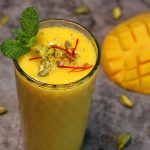Protein is a fundamental component of a balanced diet, playing a crucial role in sustaining overall health and well-being. Comprising amino acids, the building blocks of life, proteins are essential for the repair, growth, and maintenance of tissues within the body.
They contribute significantly to the development of muscles, bones, skin, and organs. Protein is integral to various physiological functions, including enzyme and hormone production, immune system support, and the transportation of nutrients. Consuming an adequate amount of protein promotes a feeling of satiety, aiding in weight management by reducing overeating.
Additionally, it helps regulate blood sugar levels, supporting sustained energy throughout the day. Incorporating diverse protein sources into a diet is crucial, as different foods provide varying amino acid profiles. Familiar sources of protein include lean, dairy products, legumes, and plant-based alternatives. Striking a balance in protein intake is key, as excessive or insufficient amounts can have adverse effects on health.
Thus, a well-rounded diet that includes an appropriate quantity of protein is vital for optimizing bodily functions and maintaining overall nutritional equilibrium. Indian cuisine stands as a testament to the country’s rich cultural tapestry, reflecting a history steeped in diversity, tradition, and regional flavors. Renowned globally for its aromatic spices, vibrant colors, and bold flavors, Indian cuisine is a culinary journey that unfolds across a myriad of tastes and textures.
The cuisine is characterized by a harmonious blend of spices such as cumin, coriander, turmeric, and cardamom, which create the distinct and complex flavors that define Indian dishes. Regional variations add depth to the culinary landscape, with each state offering a unique gastronomic experience. From the fiery curries of the south to the rich and creamy dishes of the north, Indian cuisine boasts a vast array of options to suit diverse palates.
Vegetarianism is celebrated in many parts of India, resulting in a wealth of plant-based dishes that showcase the versatility of ingredients like lentils, vegetables, and paneer (Indian cottage cheese). Additionally, Indian street food, with its eclectic mix of chaats, dosas, and kebabs, adds a dynamic street-side culinary experience. Indian cuisine isn’t merely about sustenance; it’s an art form that reflects the country’s history, geography, and cultural heritage.
Whether savoring the tangy notes of aloo tikki exploring Indian cuisine is a journey through a myriad of flavors that captivate the senses. But today, we are here to talk about protein-rich Indian food, and here are the options.
10 Protein-Rich Indian Food For A Healthy Diet
Incorporating protein-rich foods into your diet is essential for overall health and well-being. Optimal protein intake supports muscle development, aids in tissue repair, and helps maintain a healthy weight. Plant-based options like beans, lentils, tofu, and quinoa provide great protein.
Greek yogurt and cottage cheese are dairy choices rich in protein, while nuts and seeds offer a nutritious, convenient snack. Balancing protein intake with other food groups ensures a well-rounded diet, promoting sustained energy and supporting vital bodily functions.
Lentils
Lentils, tiny legumes with a big nutritional punch, are a staple in various cuisines worldwide. Packed with plant-based protein, fiber, and essential nutrients like iron and folate, lentils contribute to a healthy diet.
Their versatility makes them ideal for soups, stews, salads, and side dishes. Lentils also aid in maintaining blood sugar levels due to their slow-digesting complex carbohydrates.
As a sustainable and affordable protein source, lentils offer an excellent alternative for vegetarians and vegans. With various types such as green, brown, and red, lentils are a wholesome addition to diverse, flavorful, and nutrient-rich meals.
Paneer And Cottage Cheese
Paneer, a versatile dairy product, is a type of fresh cheese widely used in Indian cuisine. Also known as cottage cheese, it is made by curdling milk with an acid like lemon juice or vinegar, resulting in soft, white curds.
Rich in protein, calcium, and phosphorus, paneer is a nutritious addition to vegetarian diets. Its mild taste and firm texture make it perfect for absorbing the flavors of spices in savory dishes or blending seamlessly into sweet desserts.
Popular in dishes like Palak Paneer and Mattar Paneer, this dairy delight adds a creamy and satisfying element to a variety of culinary creations.
Soybean And Soy Milk
Soybeans, a legume native to East Asia, are a nutritional powerhouse and a key ingredient in various plant-based products. Rich in protein, fiber, and essential nutrients, soybeans offer a versatile source of sustenance.
From tofu to soy milk, soy-based foods cater to diverse dietary preferences. Soy milk, a lactose-free alternative to dairy, is derived by soaking and grinding soybeans.
Packed with protein, vitamins, and minerals, soy milk has gained popularity among those with lactose intolerance or following a vegan lifestyle.
Its creamy texture and neutral taste make it a suitable replacement in coffee, cereal, and cooking, providing a nutritious and environmentally friendly option.
Nuts
Nuts, nature’s compact nutritional powerhouses, are a diverse group of seeds encased in hard shells. Packed with heart-healthy fats, protein, fiber, and an array of vitamins and minerals, nuts contribute to a well-rounded diet. Varieties like almonds, walnuts, and cashews offer unique nutrient profiles, promoting cardiovascular health and providing sustained energy. Additionally, they contain antioxidants that combat oxidative stress.
Regular nut consumption is linked to reduced inflammation and improved cognitive function. As convenient snacks or versatile ingredients in both sweet and savory dishes, nuts are a delicious way to enhance well-being while delivering a satisfying crunch.
Quinoa
Quinoa, a nutrient-dense ancient grain, has gained global acclaim for its exceptional health benefits. Originating from South America, quinoa is a complete protein source, containing all nine essential amino acids crucial for muscle development and repair.
Rich in fiber, vitamins, and minerals like iron and magnesium, it supports digestive health and enhances overall nutrition. Its gluten-free nature makes it a suitable option for those with gluten sensitivities. With a light, nutty taste and a versatile texture, quinoa adapts well to various dishes, from salads to pilafs, offering a satisfying and nutritious alternative to traditional grains in modern, health-conscious diets.
Green Peas
Green peas, vibrant legumes bursting with sweetness, are not only a delightful addition to various cuisines but also a nutritional powerhouse.
Packed with fiber, protein, and essential vitamins like Vitamin K and Vitamin C, peas contribute to digestive health, immune support, and collagen formation.
These little green gems are rich in antioxidants, promoting overall well-being and potentially reducing the risk of chronic diseases. Versatile in the kitchen, they complement dishes ranging from soups and salads to rice and pasta.
Fresh or frozen, green peas offer a burst of flavor and nutrition, making them a wholesome choice for a balanced diet.
Chickpeas
Chickpeas, also known as garbanzo beans, are versatile legumes celebrated for their nutritional density and culinary adaptability. Packed with plant-based protein, fiber, and essential nutrients such as folate and manganese, chickpeas contribute to digestive health, heart function, and energy production.
Their low glycemic index makes them beneficial for blood sugar control. Popular in Mediterranean and Middle Eastern cuisines, chickpeas take centre stage in dishes like hummus, falafel, and salads. Canned or cooked from dry, these hearty legumes offer a satisfying texture and nutty flavor, making them a staple in vegetarian and vegan diets and a nutritious addition to diverse culinary creations.
Kidney Beans
Kidney beans, named for their distinctive shape, are a nutritious legume prized for their robust flavor and versatility. Packed with protein, fiber, and essential nutrients like iron and folate, kidney beans contribute to muscle development, digestive health, and red blood cell formation. Their role in promoting satiety makes them beneficial for weight management. Commonly used in chili, salads, and curries, kidney beans absorb flavors well, adding heartiness to a variety of dishes. As a plant-based protein source, they are a valuable component in vegetarian and vegan diets, offering a tasty and nutrient-dense alternative to animal-based proteins.
Chia Seeds And Pumpkin Seeds
Chia seeds, tiny powerhouses originating from South America, have earned superfood status for their exceptional nutritional content. Rich in omega-3 fatty acids, fiber, and antioxidants, chia seeds support heart health and aid digestion. When mixed with liquid, they develop a gel-like consistency, making them a versatile ingredient in puddings, smoothies, and baked goods.
Pumpkin seeds, or pepitas, are nutrient-packed seeds derived from the inside of pumpkin fruits. High in magnesium, zinc, and protein, pumpkin seeds promote immune function and bone health. Their satisfying crunch makes them an excellent snack, while their nutty flavor enhances salads, yogurts, and trail mixes. Both chia seeds and pumpkin seeds are valuable additions to a balanced and nutrient-rich diet.
Oats
Oats, a nutritional powerhouse among grains, are celebrated for their versatility and health benefits. Rich in soluble fiber, oats contribute to heart health by lowering cholesterol levels and promoting a feeling of fullness.
Packed with essential nutrients like manganese, phosphorus, and vitamins B1 and B5, they support energy metabolism and overall well-being. Oats also boast beta-glucans, compounds with immune-boosting properties. Whether enjoyed as oatmeal or granola or incorporated into baked goods, oats provide sustained energy, stabilize blood sugar levels, and offer a blank canvas for diverse flavor combinations. As a wholesome whole grain, oats are a delicious and nutritious foundation for a balanced diet.
Conclusion
In conclusion, enriching your grocery list with protein-rich Indian foods is a savory and nutritious investment in your overall well-being. The diverse array of options, from lentils and chickpeas to paneer and various nuts, not only satiate your taste buds but also provide essential amino acids, vitamins, and minerals. Embracing these protein-packed choices aligns with a balanced diet, promoting muscle development, sustained energy, and overall health.
The vibrant tapestry of Indian cuisine not only entices your palate but also ensures that meeting your protein requirements is a flavorful and culturally rich experience. So, as you prepare your following shopping list, consider these protein-rich foods for a delightful journey. Don’t forget to check out the Kesar Grocery website to buy any of the listed brand’s food items
We’ll be coming up with more blogs on health-conscious topics; thus, stay with us! Moreover, here are a few sources you can check out to observe the nutrient content in your food.


